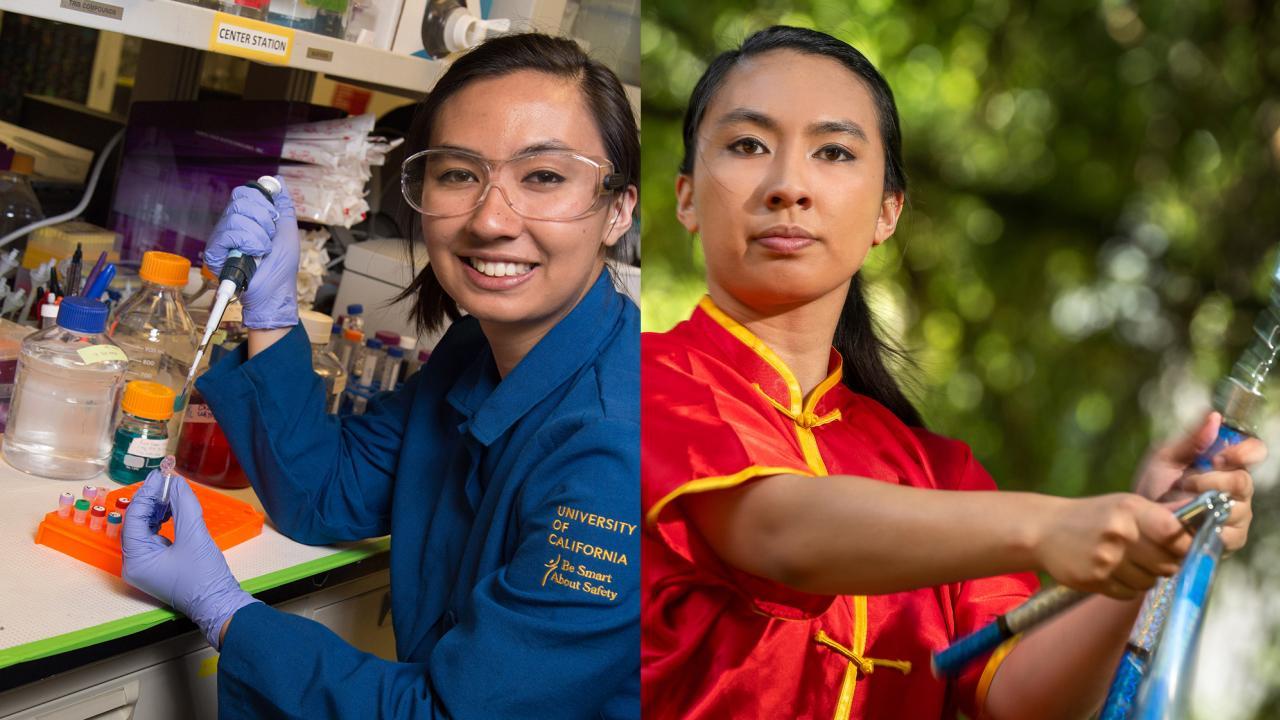
University Medalist Learned Value of Perseverance in Lab
During her second year of undergraduate research in the lab of Aldrin Gomes, Department of Neurobiology, Physiology, and Behavior, Emily Eijansantos felt ready for a solo project. She’d spent her sophomore year learning the lab’s techniques and shadowing more experienced undergraduates. She felt prepared. But like many things in life, the project—studying ibuprofen’s effects on heart cells—had its hurdles.
“A lot of people don’t know, even though it’s widely prescribed, that ibuprofen does have side effects,” said Eijansantos, a graduating senior who has been recognized with the University Medal, UC Davis’ top graduating senior award. “It increases oxidative stress in your heart and it’s associated with increased risk of cardiovascular disease.”
Researching heart disease
Eijansantos hypothesized ibuprofen damaged heart cells through activation of an enzyme called NADPH oxidase 4. To test this, she used funding from a Provost’s Undergraduate Fellowship to purchase a kit necessary for her experiments. But the kit was incompatible with her experimental cells.
“It took me a while to actually realize this because I thought I was just making a bunch of mistakes,” said Eijansantos, a neurobiology, physiology and behavior major. “It was really frustrating, but Dr. Gomes motivated me to keep trying.”
Together, the two brainstormed an alternative method and ran the experiment successfully. But it turned out that NADPH oxidase 4 wasn’t affected by ibuprofen.
Though the hypothesis was incorrect, the experience didn’t deter Eijansantos. Instead, it taught her about the nature of the scientific process and the value of perseverance.
